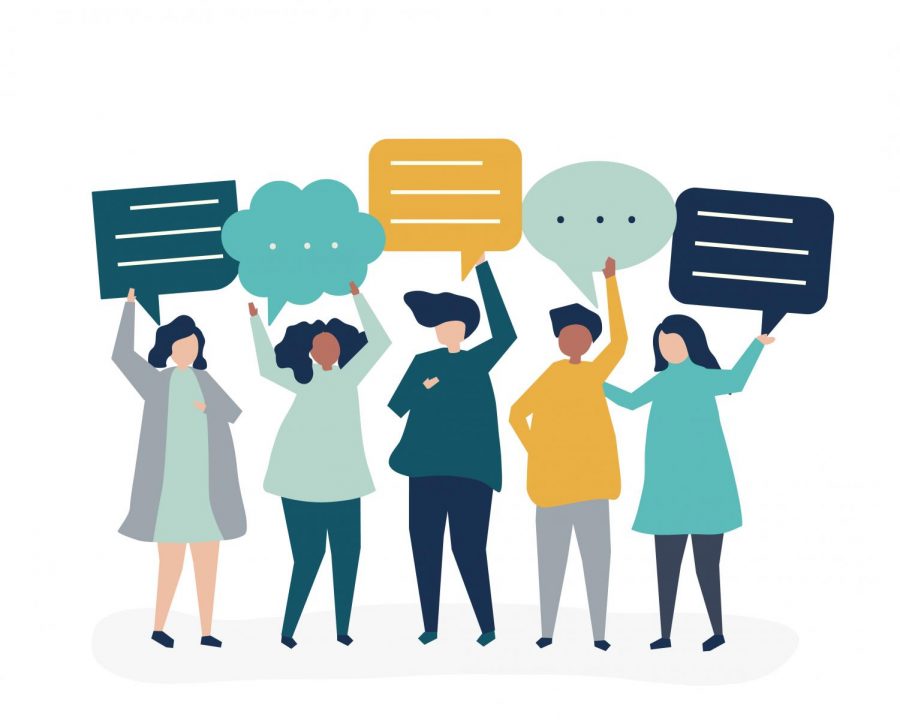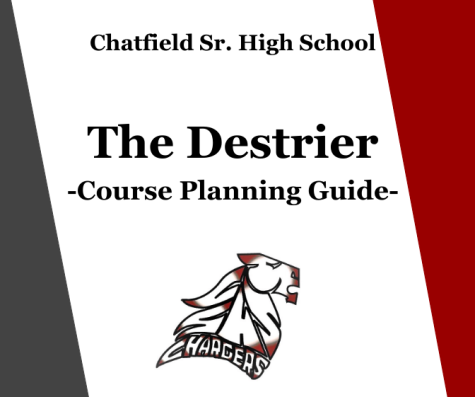Making Informed Opinions
March 19, 2021
Whoever you are, the news is somehow a part of your life. It surrounds you in some way or form. You probably have your favorite media platform that you listen to most and a least favorite you tend to avoid. Maybe you try to avoid the news completely and that’s ok, but I’d just like to ask one question. Is your opinion truly yours?
If it took you a sec to answer that, hear me out. Today in our modern world filled with the internet and many external influences, it’s very hard to think that our opinions or thoughts are truly ours.
Is that my opinion?
Did I make that opinion?
Why is that my opinion?
Because of these thoughts, I threw my work aside for a couple days to find out if my opinion is truly mine. Am I just mindlessly listening to the news and accepting everything without doubt? Am I just cattle being rounded into an opinion that wouldn’t have been mine?
Sure, my opinion is mine, nothing can take that away from me. But what I was actually trying to find out was if my opinion was formed by me. Did I find all the details in a situation and form an opinion? And did I do it in a way I was unbiased in deciding what is? Because of this thought I’ve kinda been going to the middle of debate and it’s because of this thought I’ve tried to stay unbiased. I’m not saying you shouldn’t believe in this or believe that, you are entitled to your own opinion. I’m only telling you what I’ve learned recently to form my thoughts with the emerging problem that is the massive news medias.
How do you make an informed opinion and how do you do it the right way?
- Know Yourself
This is something many will find difficult to do. I’m still not sure I know myself enough but this is truly a good way to know what your opinion should be. If you can understand your strengths, weaknesses, what benefits you, what doesn’t, what you believe and what you don’t, the better because it’s crucial in making a well informed opinion that is yours to hold. This is a lifelong task that’ll take you some time to do. If you can start working on that now, it’ll be very helpful in the future.
- Be informed (read from every source)
This seems obvious, but it’s a great way to expose yourself to new ideas. If you seclude yourself to only one news source or only one side of the debate, you’re forcing yourself into that perspective and you’re leaving yourself oblivious of the whole subject (There’s always more below the surface). If you want to be in control, listen to ALL views even if you don’t like them. Even if you don’t agree with the other views and news outlets, you should be informed of the sides of debate. This is a good step to reveal yourself to broader ideas and the subject being talked about in its entirety. On both sides of the debate, details will be left out and if you listen to both sides you can catch most of them. You’ll be more informed and you’ll have more info to make a well informed opinion. Try to look at the subject from a “million different perspectives” and try to find a “million different solutions” other than the ones suggested in the news you listen to. That way you don’t have to only believe the media’s fix to the problem is the only fix because most times it’s not.
- Stand Up For What You Believe.
This is very important because if you don’t stand up for your beliefs, who will? That’s not me saying you should be blasting your opinion to the world, you can do that and that’s a very good way of cementing your opinion. I’m more talking about how you shouldn’t buckle down and change your thoughts to something people won’t get mad at you for. Don’t be ashamed of what you believe.
If you’re worried about what others think about your opinion, you shouldn’t be surrounding yourself with those people who criticize what you believe instead of who you are. This is also not me saying you should lock yourself to outside ideas either. If you get in a conversation with someone and they give new insight, ideas, details, and their opinions, it’s ok to take their opinions into consideration because your idea can become an even bigger one with more external input. Just be careful that your external input is reliable and please be sure you can confirm what’s said to you.
- Secure Your Paradigm (Explore the Unknown)
I’ve recently talked to Mr. Svaldi about this idea and article and I had originally a whole segment only talking only about avoiding biases. He revealed there’s more to the cementing of someone’s opinion and how they form their reality. The following is a brilliant example.
Let’s paint a picture, you’re on an open ocean that spans past the horizon, the water’s deep and you can’t see the ground below you. The only platform you have to stand on is a shaky pile of junk. Occasionally you can build on to it when more junk floats your way but you’re afraid of dipping into the ocean because whatever is underneath that surface is unknown to you. You aren’t familiar with anything down there and because you’ve been fine on your junk pile, there was no reason for you to explore beneath the surface.
That platform is your paradigm (your reality) and each new piece of junk is a new piece of information from a news source, parents, or an experience that you apply to your forever growing understanding of reality. It may be shaky, but it does the job and can keep you above the overwhelming unknown.
Adventuring the unknown could completely rattle your current understanding of reality that you worked hard to build, and if it were to shatter, your back to square one and it leaves you completely vulnerable in the vast world you sit in. Others floating on the same ocean may approach you but you may push them away before they get too close. Their reinforced reality bumping into yours can smash your platform and destroy it and that’s the last thing you want. You seclude yourself to your reality and it keeps you safe.
I originally went on about how people who act this way are selfish but in reality, most are afraid of adventuring unknowns. Don’t be afraid of it. Take information that both degrades your paradigm or builds on to it because you don’t want to be stuck with a floating junk pile forever. Sometimes your source of info may be junk and if you don’t change that, your understanding of reality will be weak.
Conclusion
These are my main steps into making informed opinions and how to separate yourself from mainstream opinions. There are definitely more ways of improving on this but I thought these suggestions were the most important. Hopefully I can convince you to at least read from every source and hopefully some may have realized they don’t make their opinions and now want to change that.
Links below were my main sources of information.
How to build a strong sense of self:
Source on bias











